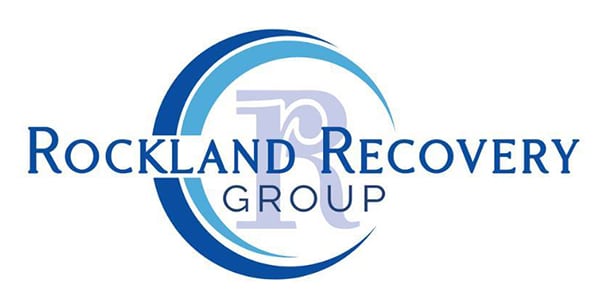Post-traumatic stress disorder (PTSD) is an often debilitating mental health condition that affects approximately 6% of the U.S. population at some point in their lives. PTSD develops after experiencing a traumatic event and causes symptoms that persist for a lifetime. Treatment for PTSD is aimed at alleviating the symptoms and helping those who are suffering from it regain control of their lives.
At Rockland Recovery, we offer evidence-based treatment for PTSD. We also know that taking the first steps to receive treatment is difficult, especially if you’re not sure what the goals of PTSD treatment are. Your time is valuable, and your mental health is important. Let’s take a closer look at the main goals of treatment for PTSD.
Jump to Section
Understanding Post-Traumatic Stress Disorder
When an individual experiences or witnesses a traumatic event, it can have a profound effect on their mental health. With PTSD, the mind struggles to process what has happened and the impact it has had on one’s life. As a result, a person with PTSD may feel as though they are perpetually trapped in the trauma, relieving it through flashbacks, nightmares, and heightened anxiety.
At its core, PTSD can be viewed as a protective or defense response, as the mind works overtime to process what has happened. However, the way PTSD manifests is unhealthy and, at times, debilitating. Symptoms range from persistent anxiety and traumatic flashbacks to emotional numbness and intrusive thoughts.
PTSD can affect every aspect of a person’s life, and it may take years to overcome without effective treatment. However, with an effective, evidence-based approach to treatment, individuals can learn to manage their symptoms and improve their overall functioning.
If you or someone you know is currently struggling with the effects of PTSD, the Substance Abuse and Mental Health Services Administration offers many resources for both individuals and their families. In addition to mental health resources, you can also find an online directory of mental health care providers on their website.
Main Treatment Goals for PTSD
One of the primary overall goals of PTSD treatment is to decrease the frequency, intensity, and intrusiveness of symptoms. This includes intrusive thoughts, hypervigilance, nightmares, and flashbacks, which are common symptoms of PTSD.
As part of symptom management, treatment also helps to alleviate avoidance tendencies. Instead of always avoiding people, places, or situations that are trauma triggers, treatment can help individuals confront and process them.
Emotional Regulation
Through treatment, those with PTSD can work toward improved emotional regulation. This includes regulating intense emotions, such as fear, anger, and sadness. Emotional regulation skills also address emotional numbness and feelings of detachment as a response to traumatic experiences.
Adaptive Thinking
Traumatic experiences can alter a person’s perspective, and cause the formation of distorted thoughts. Through treatment, it’s possible to cultivate more realistic perspectives and balanced views surrounding the trauma and its far-reaching impact.
This also involves challenging negative thoughts and beliefs related to the trauma. The goal is to eventually see the trauma as its own, separate experience that doesn’t have control over one’s thoughts and behaviors.
Coping Strategies for Daily Functioning
PTSD can affect the way a person engages at work, academically, and socially. They might feel withdrawn and avoid these types of situations as much as possible to the point that the avoidance and anxiety affect daily functioning. Through treatment, healthy coping strategies can be developed for managing stress, trauma triggers, and challenges that arise through daily living.
Strengthen and Improve Relationships
Working toward strengthening and improving relationships is an important focus in PTSD treatment. The symptoms and challenges of PTSD can have a significant effect on personal relationships, sometimes causing a breakdown of trust and difficulty with conflict resolution.
PTSD treatment helps build communication skills, foster active listening, and teach individuals how to trust and set healthy boundaries and limits.
Crisis Management
Crisis management is an important element of PTSD treatment. Through crisis management, it becomes possible to manage and mitigate acute episodes of fear, anxiety, and distress related to trauma. Effective treatment for PTSD includes a focus on crisis management strategies that help the individual feel safe and identify when they need additional support.
Exploring Different Types of Trauma Treatment
Those living with PTSD have multiple treatment options available to them. When you begin exploring treatment options, the best path is to schedule a consultation with a mental health provider who is experienced in treating PTSD. The path to treatment can look different for each person, and speaking one-on-one with a professional will provide them with the most accurate assessment of your needs. This is also the most effective way of setting realistic goals for trauma recovery.
For many, the first treatment approach for PTSD is cognitive behavior therapy (CBT) or cognitive processing therapy (CPT). Both are types of talk therapy that focus on changing or modifying one’s thoughts or beliefs around a situation and how they process it. The goal is to reframe negative patterns into healthier ones.
Prolonged exposure is another type of therapy frequently used in treating PTSD. With this, the individual is gradually exposed to elements of their trauma, including memories, that have previously been avoided. By slow, gradual exposure over a period of time, the individual learns that their memories or triggers are not harmful on their own.
Other treatments, such as eye movement desensitization and reprocessing (EMDR), narrative exposure therapy, and medications may also be used. Each experience with PTSD is unique and deserves an individualized approach to treatment.
Setting Goals for PTSD Treatment in Massachusetts
If you’ve experienced a traumatic experience and are suffering the effects of post-traumatic stress disorder, Rockland Recovery wants you to know that you don’t need to constantly live in fear and anxiety, or suffer from flashbacks and other symptoms of PTSD. The treatment goals for PTSD are designed to help you heal and recover from your traumatic experience.
Rockland Recovery is a leading PTSD treatment center with experienced staff and a dedicated approach to evidence-based, holistic care. We encourage you to call us at 888-299-4833 for a consultation today.




